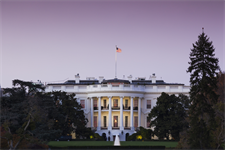In the US, Thyssenkrupp Nucera has received funding to work on the automated manufacturing of gigawatt-scale alkaline water electrolysis production lines. This grant, part of $750 million in funding for 52 projects across the country, marks the first significant federal funding of electrolysis technologies under the Bipartisan Infrastructure Law. CEO Dr. Werner Ponikwar highlighted the importance of transitioning to automotive-like mass production to best position their business in the US.
Meanwhile, in Europe, Thyssenkrupp Nucera is preparing for the electrolysis market of the future by partnering with research institute Fraunhofer IKTS. They aim to develop high-temperature solid oxide electrolyzer cell (Soec) technology for industrial manufacturing and application. By early 2025, a pilot plant built by Fraunhofer IKTS will produce high-temperature electrolysis stacks using Soec technology, initially in small quantities. Thyssenkrupp Nucera has also obtained a license to produce and use stacks based on Fraunhofer technology.
The companies believe that Soec technology will benefit industries such as green steel, ammonia, methanol, and fertilizers, as it significantly reduces electricity consumption and eliminates the need for rare precious metals. This innovative technology utilizes industrial waste heat generated during production, making it an environmentally friendly and cost-effective solution for various industries.
In addition to its work in Europe, Thyssenkrupp Nucera is also focusing on developing advanced materials for fuel cells and hydrogen storage systems to support its efforts in green hydrogen production. The company aims to become a leading player in this rapidly growing market and continues to invest heavily in research and development to achieve this goal.
To stay updated on the latest news and developments in green hydrogen technology, subscribe to our green hydrogen bulletin for fortnightly updates delivered straight to your inbox. For submissions or ideas for the bulletin, please contact our editorial team.
Overall, Thyssenkrupp Nucera’s focus on developing advanced materials for fuel cells and hydrogen storage systems is a testament to their commitment to sustainability and their vision for a cleaner energy future. With its partnership with Fraunhofer IKTS and its work on Soec technology, Thyssenkrupp Nucera is well positioned to capitalize on this growing market opportunity while contributing towards a more sustainable future.
As governments continue their efforts towards net-zero emissions targets and investors seek out opportunities in renewable energy technologies such as green hydrogen production, companies like Thyssenkrupp Nucera are well positioned to benefit from these trends due to their expertise and investment in advanced materials development.
In conclusion, Thyssenkrupp Nucera’s focus on automotive-like mass production through automation of alkaline water electrolysis production lines marks an important step forward towards achieving greater scale and efficiency in this rapidly growing industry sector. Its partnership with Fraunhofer IKTS highlights its commitment towards developing innovative solutions that can benefit multiple industries while reducing carbon emissions.
